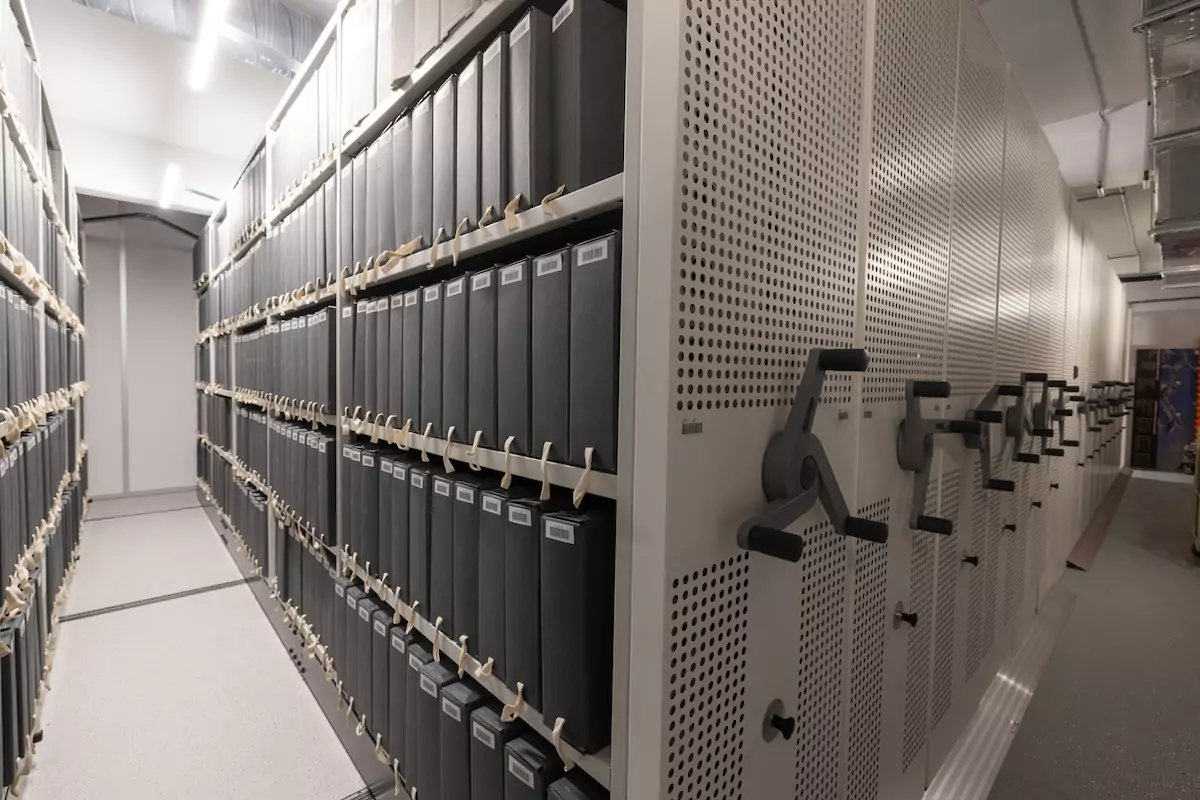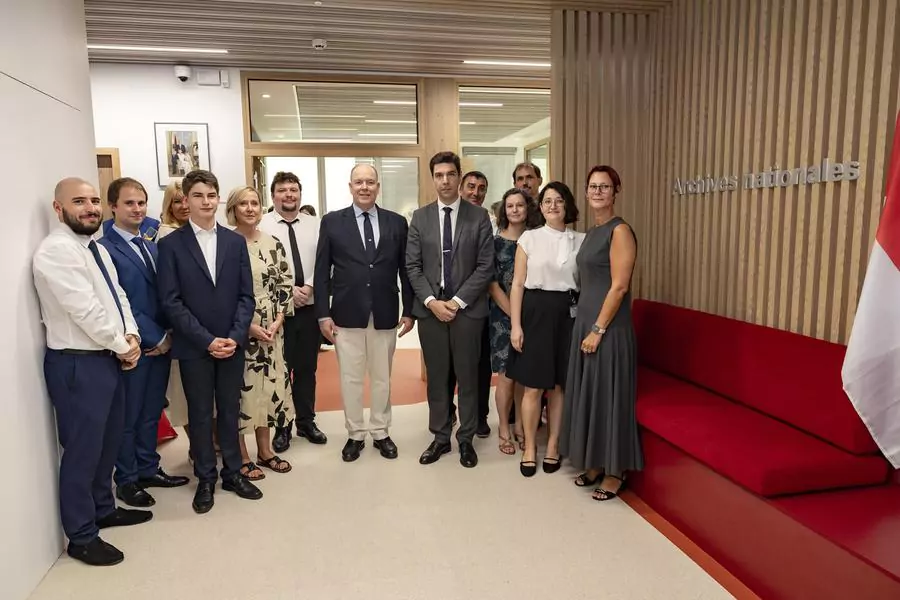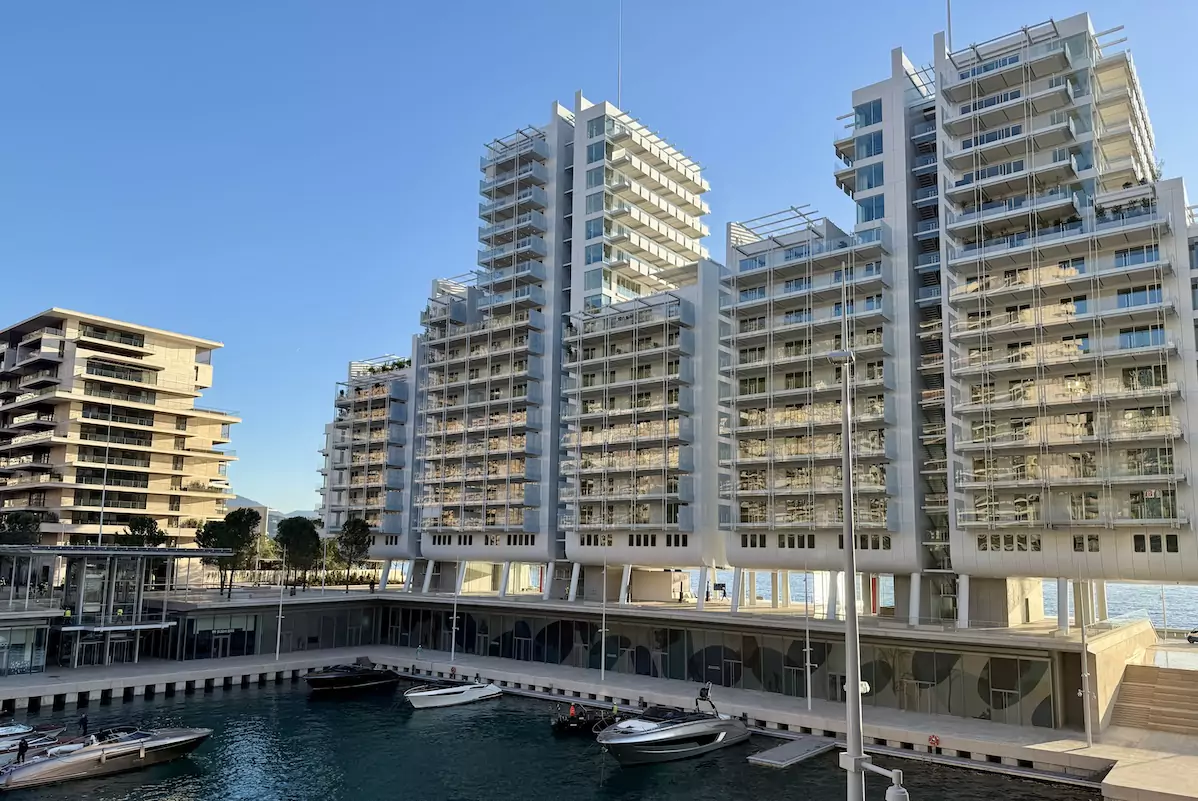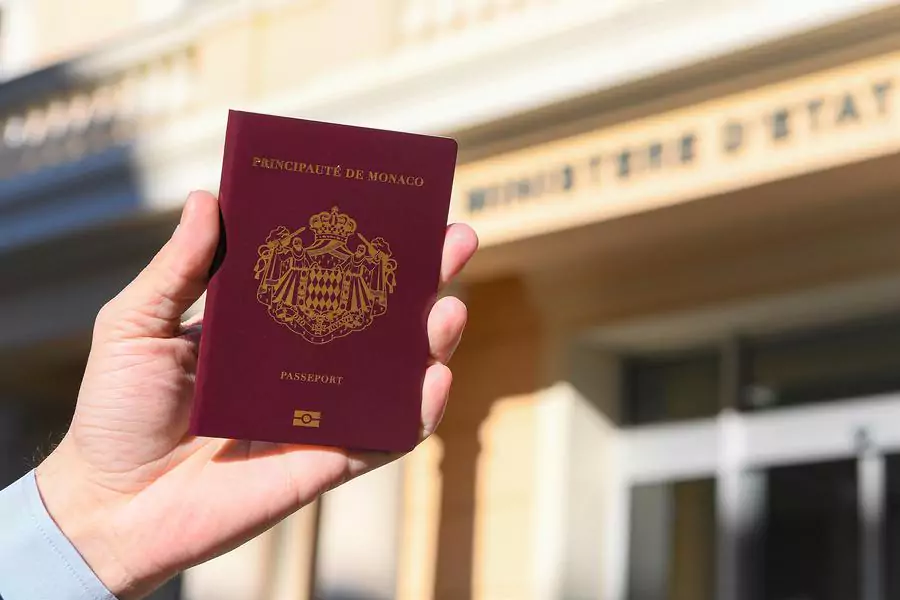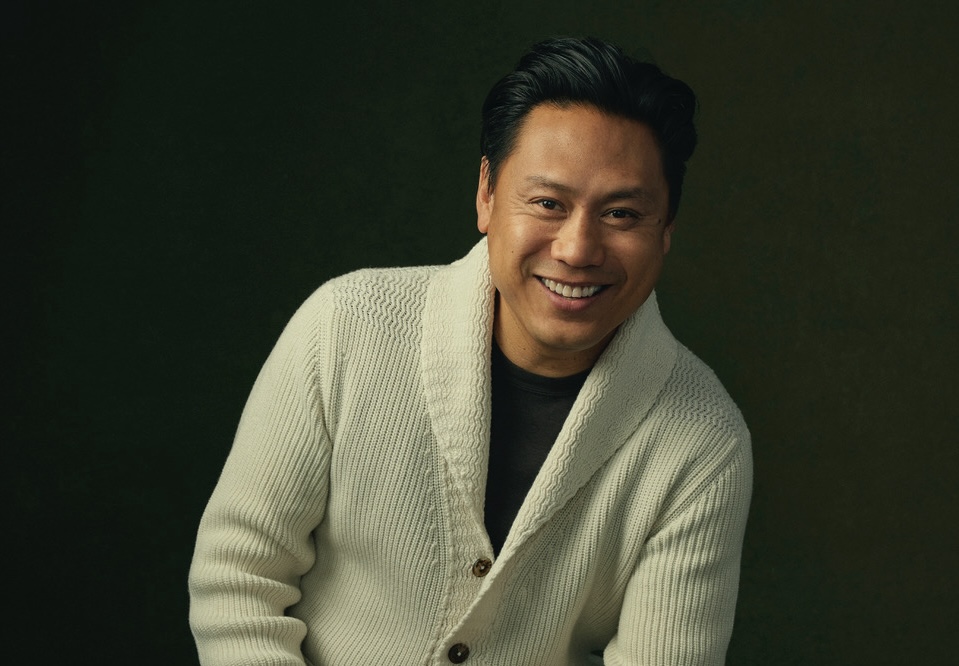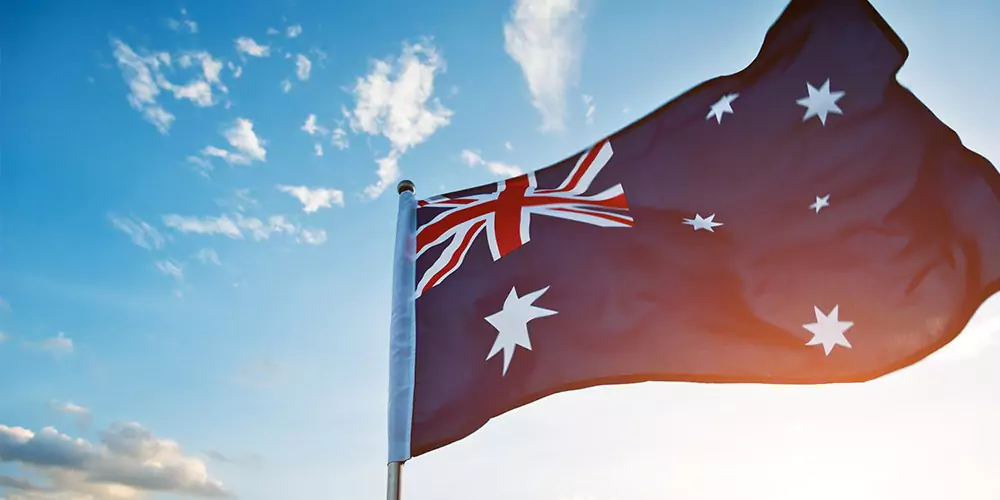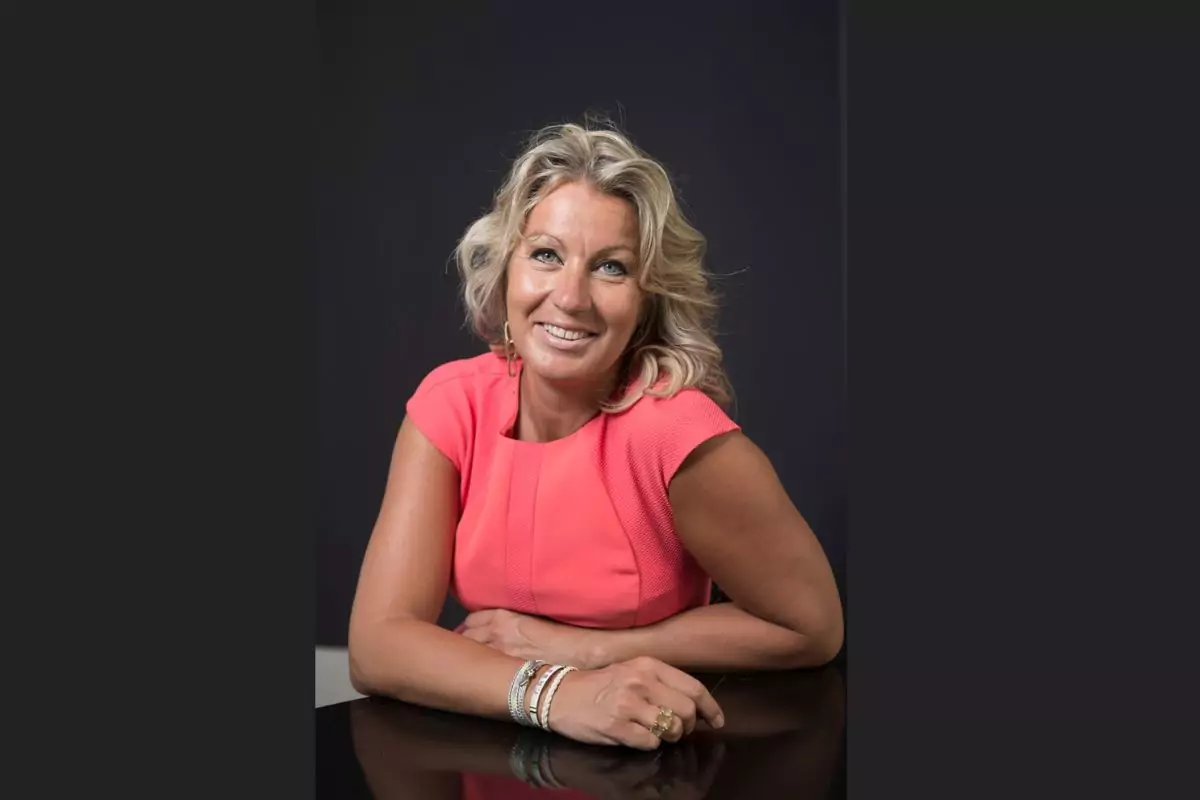In a time when disruption is no longer a forecast but a constant, leadership itself is undergoing a transformation. The traditional model — commanding, certain, individualistic — is being replaced by something more nuanced, more human. At the forefront of this shift is Hanne Jesca Bax, EY’s Global Vice Chair – Markets, who brings nearly three decades of experience to the table and a perspective shaped by leadership roles across Europe, the Middle East, and beyond.
Sitting down with Monaco Life Editor in Chief Cassandra Tanti during the recent EY Entrepreneur of the Year Awards in Monaco, Hanne Jesca Bax shared unfiltered reflections on how leadership has evolved, what it takes to thrive in an AI-driven world, and why listening — really listening — may be the most powerful tool in any executive’s repertoire.
Cassandra Tanti: You’ve held leadership roles across Europe and the world. How has your leadership style evolved over the years?
Hanne Jesca Bax: That’s a great question—someone on the panel earlier mentioned the shift from “boss-style” leadership, and I loved that. Leadership is evolving.
I started out in the Netherlands, and honestly, the biggest privilege in my career was moving from the Netherlands to the EMEIA region. At the time, it included 96 countries—fewer now, but still incredibly diverse. That was the biggest gift, because you have to adapt. I came from a very direct culture—we say what we think, and we think what we say. Even within Europe, that’s not always the norm. Working with the French or Germans was already a shift, but spending significant time in the Middle East pushed my adaptability further.
I would travel to places like Kuwait or Qatar on my own. I had to consider how to dress, how to speak, how to engage with people respectfully. Adapting to other cultures, adjusting your language and style—that’s probably been the most important lesson. Now, I enter rooms more relaxed, calm, making space for others to speak and ensuring everyone feels included. I learned that if I share my opinion too early, especially as a strong personality, others—perhaps less experienced or more junior—might not speak up. So, I’ve learned to speak last. That wasn’t easy because our culture rewards those with strong viewpoints, especially if you’re aiming for partnership. But once you’re in a leadership role with a diverse team, your role shifts.
As a woman, did you feel that you ever faced a “glass ceiling”, particularly working in regions like the Middle East?
Personally, I never felt that. I’ve been with EY for nearly 30 years. When I started out, all my clients were men, but I never felt I had to fight harder than they did. Maybe I just didn’t focus on that. I was always focused on doing what I was good at and delivering results. I wasn’t dwelling on how others perceived it.
But I do recognise that many women do feel there’s a glass ceiling. EY has done an incredible job in improving parity across the organisation. That said, I see many women trying to be the perfect mother, the perfect partner, the perfect professional. They constantly feel guilty—guilty for not being at home, guilty when they are home and not giving work their all.
I always tell my team: you need to find your own balance. Set your own rules. Set your own boundaries. It doesn’t matter what they are—what matters is that they work for you, and that those around you respect them. That’s helped me a lot, and it’s advice I share with everyone—men or women.
Do you think the pandemic changed how women experience the workplace?
Absolutely. I think it made things more difficult in some ways. While flexible work was hailed as progress, for many women, it added even more pressure. They had to be triple perfect—working from home, managing homeschooling, and still keeping everything together.
Yesterday, we had a fascinating conversation with some women leaders. One of them said it’s not about “work-life balance” anymore—it’s about “work-life integration”. Another shared a brilliant quote: “We need to stop measuring time in hours and start thinking in terms of intensity”. She said, “Sometimes I work three weeks straight as an entrepreneur, and then I take time off”. It’s about flexibility, but also acknowledging the mental and emotional energy different tasks require.
What does effective leadership look like today, especially with rapid changes like AI and global uncertainty?
It comes down to finding your inner peace and accepting that you don’t—and can’t—know everything. What you know now may be obsolete in three hours.
I’m naturally a positive person, but I do think we’ve become addicted to speed. Constant newsfeeds, checking updates every 15 minutes—it’s exhausting. I hope AI can help filter that noise. Imagine being able to say, “I’ll check everything at 7pm,” and trust that you’ll still get what you need.
Leaders need to focus on fewer things—the things that really matter. And they need to filter out the noise. That’s also part of wellness. If you’re trying to be “on” 24/7, you’ll burn out. The problem isn’t the technology itself—it’s how we use it. We need to build better behaviours around it.
We also need to rely on our teams more. One person can’t track everything. So maybe one person dives into geopolitics, another into tech developments—we trust each other’s expertise and share.
What global trends is EY advising clients to prepare for in 2025 and beyond?
I group everything into four ‘megaforces’: geopolitics, technology, demographics, and sustainability. These forces used to be somewhat separate, but they’re now deeply intertwined.
Think about technology and politics—where is the tech coming from? The US? China? What about massive investments coming from the Middle East?
Supply chain disruption started with Covid, but it’s continuing. Demographically, the global population is shifting from the West and North to the South. Aging populations in the West—where’s the youth? The Middle East, Africa. That’s where growth is coming from.
Most of our clients are not ready. They know these shifts are happening. They’re concerned. But they’re still fighting today’s battles and not preparing for tomorrow. Few are doing proper scenario planning. When Covid hit, most companies were caught off guard. It keeps happening.
Is there just too much noise out there? Too many signals to figure out what matters?
Yes, there is too much noise. But there’s also short-term pressure. Corporate clients are under enormous pressure to deliver short-term shareholder value, which limits long-term thinking.
Interestingly, we see that entrepreneurs—especially here—are more focused on long-term purpose and transformation. For them, growth is an outcome of having the right strategy and purpose, not the goal itself.
It’s frustrating because we’ve been talking about disruption for years, yet many organisations are still unprepared. Every year in our CEO surveys, they all say: “We expect disruption”, but they also admit: “We’re not ready”.
Same with AI—everyone talks about it, huge amounts of money are being spent, but it’s often limited to back-office efficiency. They’re not asking the deeper questions: What does AI mean for my core business? For my customers? For their experience?
You were recently appointed EY Global Vice Chair – Markets. What do you hope to bring to your role?
First, I want to expand our engagement with entrepreneurs. But more than that, I want to encourage an entrepreneurial mindset. That applies not just to entrepreneurs, but to anyone willing to challenge the status quo—whether in a corporation, government, or anywhere else.
We’ve built an incredible asset over the past 25 years: 1,250 past winners, thousands of participants. We’re exploring ideas like a ‘Nobel Prize for Business’, creating platforms that celebrate and connect these individuals without diluting the intimacy of the event.
Second, we’re pivoting to strengthen our sector focus. EY’s matrix is complex—156 countries, multiple service lines, major technology alliances. Clients are asking for deeper, more localised sector insights. So, we’re simplifying our regional structure and anchoring our strategy more in sectors and geography.
And finally, I want to better connect brand, marketing, and sales. EY is known for audits in many markets—but that’s just one part of what we do. We’ve made major investments and acquisitions elsewhere, and we need to communicate that better. Events like this should be integrated into our brand story and go-to-market strategy.
Sustainability—how central is that to EY’s strategy now?
It’s a core focus. We launched it about six years ago. Today, it’s our fastest-growing area—even faster than tech. Our new three-year plan starts this July, and sustainability is a major growth driver.
Some think the momentum is slowing because of political changes, especially in the US. But that’s not what we’re seeing. Globally, companies are embedding sustainability into strategy—not just for compliance.
It’s no longer just about ESG reporting. It’s embedded in corporate development and transformation. That makes it more complex—it touches many parts of the organisation.
Also, tech itself (including AI) contributes to energy consumption, which loops sustainability back into every conversation. It’s all connected.
You mentioned Gen Z and AI—what’s your perspective there?
We recently surveyed members of Gen Z, who by the end of this decade will make up 40% of the workforce. The good news? They’re optimistic about AI. But two things worry me: they don’t know what questions to ask, and they struggle to distinguish truth from misinformation.
Those are foundational skills—and they’re missing. Education systems aren’t equipping them, and many corporate environments aren’t either. That’s a concern.
At EY, we have over 400,000 people, and our internal AI adoption hit 82% within months. That’s unheard of. Usually, we have to push new tools—this time, we didn’t. People pulled it. But now we’re racing to provide the right training and guidance.
I believe AI education needs to start in secondary schools—not universities. By the time you get to college, it’s too late. My daughter just turned 16, and she’s learning the same curriculum I had 40 years ago. That’s not going to prepare her for the world she’ll live in.
We need to ask: What are the skills a human needs to thrive in the next 10–50 years? That’s where education should focus.
Let’s talk about Monaco—EY has held it’s annual awards gala here for a long time. What keeps it on the agenda?
We’ve debated it over the years. Should we stay in Monaco? Does it align with our brand? Every few years, we reassess.
But when you go through the criteria—creating a close-knit community, keeping people safe, creating something magical—it always comes back to Monaco.
Logistically, it’s ideal. Everything is walkable. We can keep our people together. If we moved this to a major city like London or New York, people would scatter for other meetings. Here, we’re all in one place. And the support from the Principality has been incredible.
See also:
Stina Ehrensvärd named EY World Entrepreneur Of The Year 2025 in landmark Monaco ceremony
Monaco Life is produced by a team of real multi-media journalists writing original content. See more in our free newsletter, follow our Podcasts on Spotify, and check us out on Facebook, Instagram, LinkedIn and Tik Tok.
